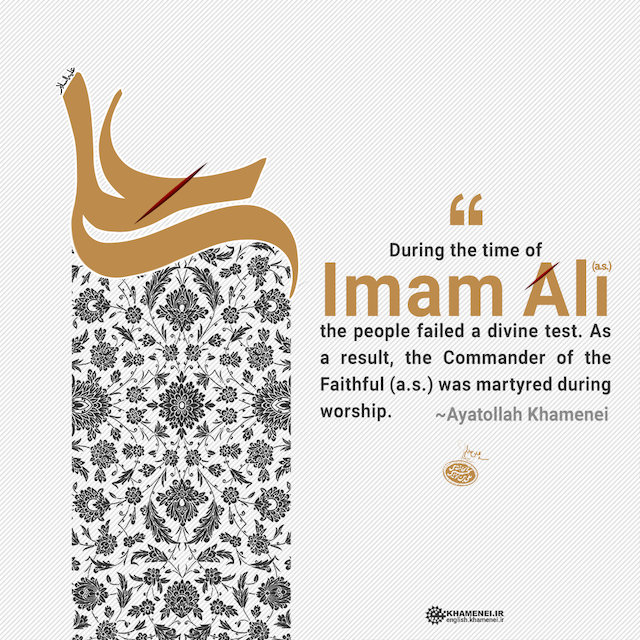If one's politics originate from morality and feed from spirituality, then it will be a tool for the people who are faced with it, to achieve perfection and paradise. But if politics become separate from morality and spirituality, then it will be demagoguery. It will be a tool for gaining power at any price, for accumulating wealth and for furthering one's own interests. This kind of politics is like a pest. It is a pest for both the politician himself and for the people who are faced with this kind of politics in their everyday life.
The Commander of the Faithful (a.s.) describes his rule, during which three all-out wars were waged and thousands of soldiers were killed, in a way that it shows his contempt. You should take a look at Nahjul Balaghah in order to see what he has said in this regard. Once, when addressing Ibn Abbas, he described it as something which is even less worthy than his old and patched up shoelaces. In another part of Nahjul Balaghah, he said, "Then you would have seen that in my view this world of yours is no better than the sneezing of a goat" [Nahjul Balaghah, Sermon 3].
What value does the sneezing of a goat have? It has no value. He says that this power and this rule is even of less worth and less significance than the sneezing of a goat. In the same sermon, he explains why he accepted government: "If people had not come to me and supporters had not exhausted the argument, [I would not have accepted caliphate]". He said that he accepted caliphate because the people insisted and pledged allegiance to him.
He goes on to explain, "If there had been no pledge of Allah with the learned to the effect that they should not acquiesce in the gluttony of the oppressor and the hunger of the oppressed I would have cast the rope of caliphate on its own shoulders". He says that Allah the Exalted has commanded scholars and knowledgeable personalities to avoid enduring the oppression of oppressors and the hunger of the oppressed. These were the things which drew the Commander of the Faithful towards caliphate. He showed resistance, and even fought against those who plotted against him and who went back on their pledge of allegiance. If it had not been for such things, caliphate would have been worthless to him.
One of the characteristics of his politics is that it was free of any deception and trickery. The Commander of the Faithful (a.s.) has narrated, "If it were not for piety, I would be able to use tricks better than all deceitful Arabs" [al-Kafi, Volume 8, page 22]. When comparing himself with Muawiyah, he says, "I swear to God that Muawiyah is not more clever than me" [Nahjul Balaghah, Sermon 200]. But what should Ali do? When he is committed to piety and morality, then his hands and his tongue are tied. This is the method of the Commander of the Faithful (a.s.).
If one is not pious, his hands and his tongue are free and they can do and say whatever they want. If we are not pious, we can say things which are not true, we can engage in slandering, we can tell lies to people, we can break our promises, and we can become attached to the enemies of the straight path. When piety does not exist, this is the way we behave. The Commander of the Faithful (a.s.) said that he chose politics and piety together. This is why there was not any deception and dishonesty in the methods that he adopted.




Comment